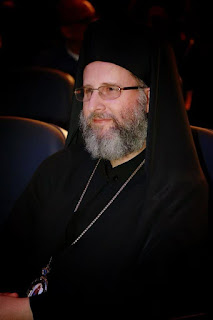Christ in history was neither a political agitator nor a reformer of the
traditional mores of the society in which He was born. Even though He showed
himself free from many taboos and prejudices especially with regard to women,
Jesus did not spend His time transgressing the customs of His time. "The
one thing necessary" for Jesus was the interior turning, conversion, the
change of heart that opens the door of the Kingdom: "Repent, for the
Kingdom of heaven is at hand." His preaching is summed up in these
words, but this change of heart must be expressed in acts, whether it is
expressed in ordinary or exceptional circumstances.
 |
Jesus and the Samaritan woman.
|
Jesus
did not encourage women to take on roles or life-styles that were considered
masculine in the culture of the time. The women that Jesus associated with
busied themselves with household chores and served at table. The number of such
women is remarkable, and the gospels often give us their names. They were
sometimes prostitutes. However, He did not send the courageous women who had
been following him since Galilee back to their husbands and their pots and
pans, and in fact, He praised Mary of Bethany who left domestic cares to her
sister Martha.



